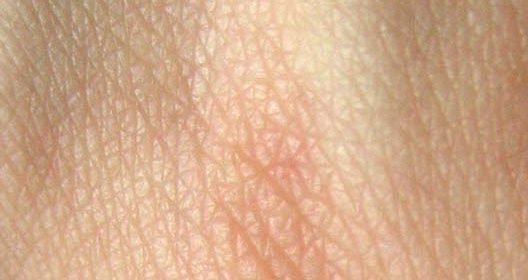Portable microwave tech used in treating skin lesions

A new method of using a Scottish company’s portable microwave technology to treat sun-damaged skin conditions is being tested by researchers at the University of Dundee.
It is estimated that one in three people over 60 years old in the UK has at least one actinic keratosis (AK) lesion—the first appearance of a potential non-melanoma skin cancer. There is a small associated risk that the lesions could progress into a more dangerous form of skin cancer called squamous cell carcinoma. Patients who have actinic keratoses are also more at risk of all types of skin cancer compared to someone of the same age without actinic keratoses.
With a deficit of more than 200 dermatologists in the UK, the ability to diagnose and treat is being diminished. Up to 25 percent of GP workload is skin based and with an ageing population the crisis in dermatology needs treatments that are effective, decentralised and time efficient. Existing treatments fail to balance effectiveness, side effects and cost.
Scottish company Emblation is at the forefront of new technology in the dermatology market with a highly effective treatment for plantar warts. The device has been used in more than 15,000 wart treatments UK wide to date and works by coagulating soft tissue, and inducing a local immune response.
Charlotte Proby, Professor of Dermatology at the University of Dundee, is leading the research study to examine the effectiveness of the treatment against AK.
Professor Proby said, “This technology appears to have significant potential to offer efficient treatment of actinic keratosis, a common condition which affects many among our older population.
“Removing these lesions can offer protection against more serious skin diseases including some forms of cancer, and an effective treatment that can be delivered quickly and at low cost would be a significant development.
“The results and experimental data will provide a starting point for a Randomised Control Trial (RCT) after the project. An RCT is high risk and cost without this project.”
The technology will be tested for use on AK in conjunction with the Tayside Clinical Trials Unit (TCTU) who will run the trial at the Division of Cancer Research at the University of Dundee. The study is being funded by Innovate UK.
Dr. Matt Kidd, R&D Director at Emblation, said, “The enrolment of the first patients in this seminal study for the treatment of Actinic Keratosis is a significant milestone for Emblation’s platform technology.
“We have been working closely with our partners from the University of Dundee for a number of months now and we’re confident we will have clinical and in-vitro data from our microwave-based platform technology to offer a disruptive, efficient treatment for AK and other lesions that would benefit from a localised immune response therapy.
Source: Read Full Article